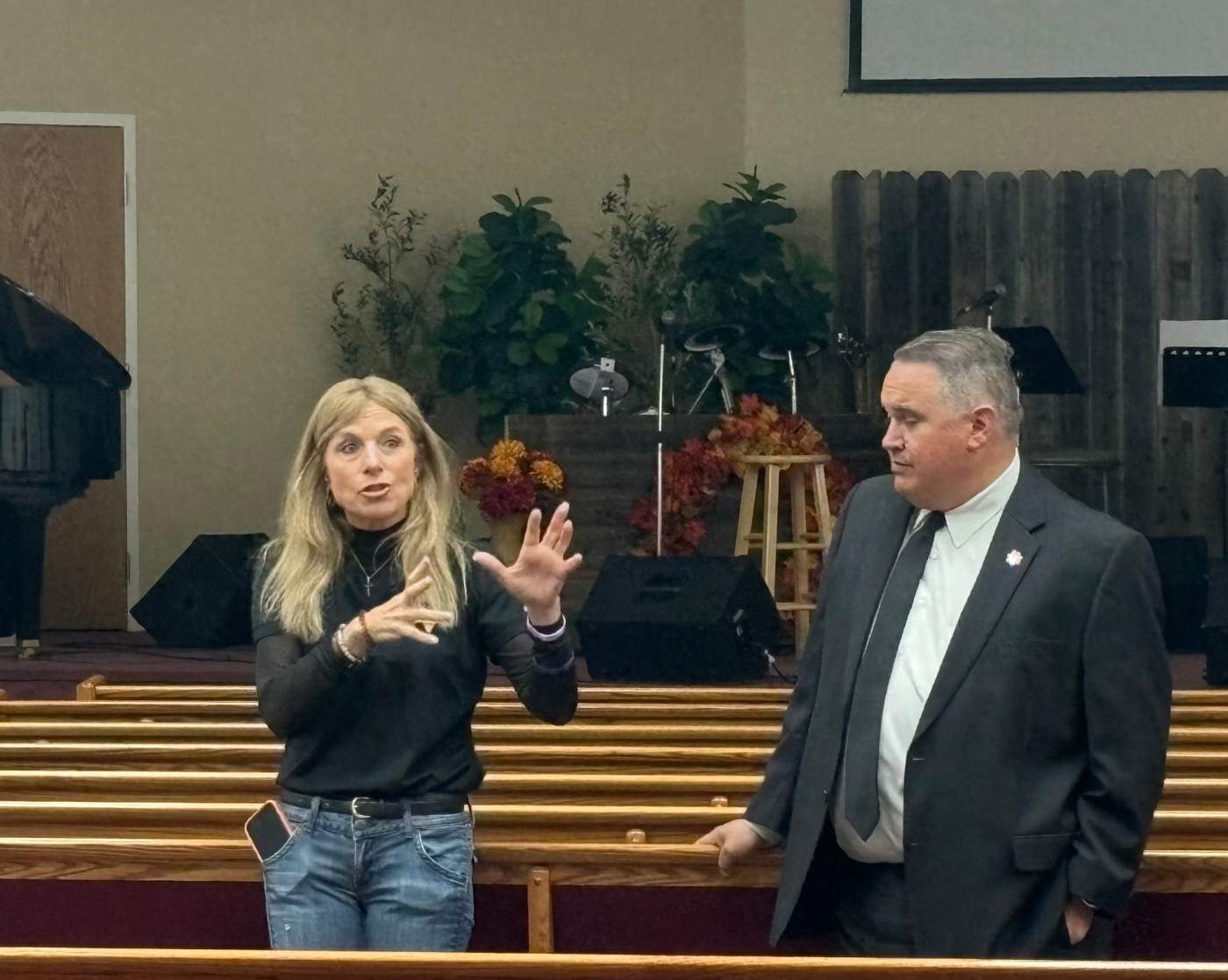On Saturday, a mobile court event at Orchard Baptist Church in Vacaville provided an opportunity for the homeless community to clear misdemeanor charges and have arrest warrants recalled. Organized by Solano County District Attorney Krishna Abrams and local homeless advocates, the initiative aimed to facilitate legal resolutions for individuals living without stable housing. Participants left with letters verifying that their cases were dismissed, allowing them to move forward without legal burdens.
Before the hearings commenced, Abrams expressed her enthusiasm for the event, stating, “We just wanted to do a good deed in terms of getting these cases off of the docket.” Many attendees had outstanding warrants that needed to be recalled, while others required cases to be dismissed before they even reached the court. Matthew Olsen, a Deputy District Attorney, emphasized the positive impact of the event, describing it as a “very feel-good event.”
The motivation for the mobile court arose after an increase in arrests among Vacaville’s homeless population. According to Skip Thomson, a former Solano County Supervisor and event organizer, statistics indicate that in July, homeless individuals accounted for 96 of the 242 arrests booked into the county jail. He remarked, “It’s too costly to keep arresting people. I mean, how many times have we heard, ‘We can’t arrest our way out of this?’”
Thomson highlighted the challenges faced by homeless individuals when navigating the judicial system. Many struggle to attend court dates due to unreliable public transit and the difficulties of living outside. “They don’t know what day it is,” he explained. The county has implemented some transportation assistance, but initial appearances often lack support.
Thomson further noted that the increase in arrests can be traced back to the 2024 Grants Pass ruling by the United States Supreme Court, which upheld cities’ rights to enforce “anti-camping” ordinances. “Every night that the homeless are on the streets, they’re camping illegally. Where else are they going to go?” he said, arguing that continued arrests for unlawful camping are unjust.
In addition to the legal assistance, the event featured a resource fair where attendees could access food, coffee, pet supplies, and services from various organizations. Sheryl Cutler from the Solano County Workforce Development Board highlighted the importance of employment opportunities for justice-involved individuals. She noted the Fair Chance Act, effective since 2019, which prohibits California employers from inquiring about prior arrests in job applications. “Since they have taken that off the legal hiring process, many more companies are open to hiring someone with a criminal record,” she stated.
Abrams praised the community involvement in the event, stating that hosting it away from the courthouse created a safer environment for participants. “I think people realize once it’s at a church that it’s a safe place and that there will be no arrests,” she noted. She emphasized that clearing charges can significantly improve attendees’ lives by removing barriers to housing, employment, and even parental rights.
Despite the positive outcomes of the event, Thomson pointed out the ongoing difficulties faced by the homeless population. “If you are homeless, you will be arrested,” he said, expressing concern that current enforcement practices often lead to unnecessary legal complications for those simply trying to survive. He argued that the community needs to rethink its approach to homelessness, stating, “What we are doing has not been working,” with the homeless population in Vacaville rising from about 80 individuals three years ago to over 300 today.
The mobile court event was well-received, offering a unique opportunity for individuals struggling with homelessness to engage with the legal system in a supportive environment. Thomson highlighted that such initiatives can transform perceptions of the judicial system among the homeless population, allowing them to see it as a resource rather than an adversary. “Giving the opportunity to get their warrants cleared out removes a lot of hurdles,” he concluded, emphasizing the significance of second chances for those facing significant challenges.
